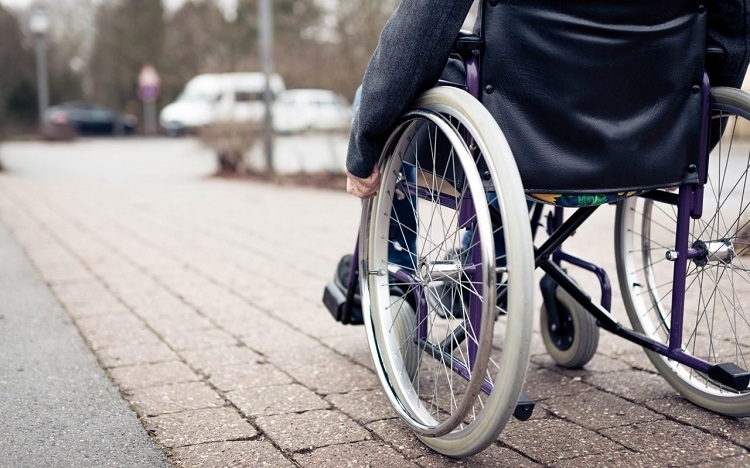Health
5 Tips to Lose Weight Without Dieting

There are diet plans that will make you lose weight fast, but leave you hungry and feeling deprived. If you’re looking for a way to drop those pounds without depriving yourself, to gain more awareness about the secrets behind dieting click on the website https://www.40tbfacts.com/.
Here are five tips that will help:
Table of Contents
Avoid Processed Foods
Processed foods are high in fat and calories, which is why they’re often the target of weight-loss diets. They also offer little nutritional value so you’ll still feel hungry even after eating them. Processed foods are loaded with sugar, unhealthy fats, and sodium. Not only do they contribute to weight gain, but they can also lead to health problems like heart disease and diabetes.
Eat Plenty of Fruits and Vegetables
Fresh produce is rich in nutrients, antioxidants, and fiber. All of these help to boost your metabolism and keep you feeling full. Avoid drinking sugary drinks like soda, sweet tea, and juice since they have high calories and can quickly sabotage your weight loss goals. Stick to water or unsweetened tea instead.
Work Out Everyday
If you want to lose weight without dieting, you need to exercise. Not only is it great for cardiovascular health and strengthening bones, but studies show that people who work out regularly are more likely to lose weight in the long run.
Aerobic exercises like running or biking not only help tone your body, but also help with weight loss. If you don’t have time to hit the gym, try exercising at home. You can even download fitness apps on your phone that are specifically designed to get you moving.
You also need pre and post-workout supplements to keep your energy levels high and give you a boost for those tough workouts. You can also use supplements used by professionals such as Jason Huh to help you on your bodybuilding journey. Some of these supplements will help you lose fat and maintain your muscle mass.
Drink Plenty of Water
Staying hydrated is essential for weight loss. Water helps rid the body of excess sodium and toxins, which will make you feel healthier and more energized. It also keeps your metabolism going strong so you burn calories faster.
Drink at least eight glasses a day to keep yourself feeling full and satisfied until it’s time for your next meal. If you find water boring, add a slice of lemon or cucumber for some flavor. You can also drink herbal tea, which is low in calories and has detoxifying properties. Water is essential to losing weight without dieting, so make sure you’re drinking enough every day.
Time Your Meals
Make sure you eat your meals at the right time. Eating small, frequent snacks will help boost your metabolism and keep you feeling satisfied between bigger meals where possible. It’s also important not to go more than four hours without eating something so that your body doesn’t start breaking down muscle tissue instead of fat cells for energy.
Eat three big, healthy meals daily to keep your metabolism up and maintain an even energy level throughout the day. Four hours before working out, eat a snack containing both protein and carbs so you have enough fuel for your workout without feeling weighed down or bloated.
Many people try to lose weight by going on a restrictive diet, but this is not the only way. Therefore, if you are looking to drop a few pounds without starving yourself, then visit the website https://mymigraineadvisor.com/ and try implementing all of the tips. You will not only lose weight, but you’ll also be doing your body a world of good.
Health
Your NDIS Plan: 3 Tips To Get The Most Out Of It

It’s only natural that many Australians get overwhelmed by their National Disability Insurance Scheme(NDIS) plan. It’s full of complex jargon that covers every intricacy and this can be daunting for many people. But it doesn’t have to be that way! For starters, it’s important to know that there is help available, and help that can help you get the most out of your plan:
Table of Contents
There is help available
The best NDIS provider Mentone has will tell you that there is always help available. In fact, there are thousands of professionals across the country whose job is to help everyday Australians comprehend and navigate the system. They are called support coordinators and they will help you comprehend and get the most out of your plan.
They are your go-to in a moment of confusion, your bastion of understanding at the times you just want to fling the documents onto the floor. What’s more, there are also plan managers and service providers who can continue the given assistance.
When it comes to your plan you are certainly not alone. You likely weren’t expecting to have a plan any time soon so you’re not expected to understand all its complexities. Therefore, it’s always a good idea to reach out to a support coordinator or plan manager for advice – they will walk you through all the annoying jargon that can make this whole thing an apparently frustrating burden.
The NDIS is just one of those things that some people have a greater working knowledge in – there is nothing wrong with not fully understanding your plan and there is help available!
Begin with your goals
It’s a near-impossibility to simply list all of the supports you might need in daily life. This is because there are many different ways in which support might be required: food, cleaning, medication and the list goes on.
Therefore, one of the best ways to determine your needs is through determining your goals: what do you look to achieve through your plan? And, importantly, what you need to go from where you are now to a point where you believe you’ve reached your goals. This will help guide an idea of what support you will need for your plan. What’s more, the NDIS and its support coordinators, plan managers etc. can help you define your goals and, consequently, your support structure.
Don’t worry – whilst this process may seem overwhelming at first, you will reach a point where it makes sense and your goals and support requirements are clearly defined.
Work towards comprehending your plan
Before finalising your plan it is certainly a good idea to understand every aspect your plan can cover and what support opportunities are available. Your supports will be organised under a range of categories under the varying funding options. Each support category relates to a particular plan outcome that relates to your goals and how you would like to achieve them.
They can cover expenses you may not be aware of, so it’s always a great idea to have a thorough read about each category and what supports might be more beneficial than others. Once again, there are experts on-hand who will help you understand each and every category. They can ensure that you choose the support categories that are most suitable for your needs and goals.
Basically, the main thing is not to stress – there is help available! They will ensure that you get the very best cover with your disability insurance scheme plan and that you have the right team looking after your needs.
Health
Reducing Healthcare Costs With Quality Nursing

It’s a well-known fact that the American healthcare system is one of the most expensive in the world, for individuals, pharmaceutical companies, hospitals and terminally ill patients.
In 2021, America spent about $4.25tn on healthcare, making the United States healthcare system one of the most expensive in the world. The country is trying to curb these soaring costs with various strategies, including optimizing the role of registered nurses (RNs) in providing cost-effective healthcare services.
RNs play a vital role in providing high-quality, affordable care. They are skilled professionals who can reduce the occurrence of costly medical mistakes. Reputable institutions, such as Wilkes University, offer an accelerated nursing program for those who have earned a bachelor’s degree in another field and are looking to transition into nursing. Wilkes University accelerated nursing program is fully accredited by the Commission on Collegiate Nursing Education and uniquely structured with only two terms in a year to help nurses balance other commitments. This program can help nurses build strong career foundations, including understanding the cultural and economic factors of treating diverse patient populations.
Below, we discuss some of the ways registered nurses can provide cost-effective healthcare services to patients, regardless of age.
Table of Contents
Ways that registered nurses provide cost-effective care
Registered nurses have expertise and commitment that can contribute to improved health outcomes and reduced healthcare costs. Here are some of the ways they can do this:
Preventative care efforts
RNs provide cost-effective care through several preventative care efforts. They focus on educating the community by promoting a healthy way of living. They also promote mental health awareness, and early detection of health conditions. These efforts can help to reduce healthcare costs and improve patient outcomes.
When educating communities, RNs actively engage with the public to disseminate vital health information. They may conduct health workshops or seminars on topics such as nutrition, exercise and the dangers of smoking. For instance, a nurse may lead a community program to discuss the importance of a balanced diet and regular exercise in preventing obesity and the associated health risks. Outreach efforts like this will help inform people about what they can do to improve their health. This, in turn, reduces unnecessary visits to the hospitals. After all, well-informed individuals are more likely to engage in preventive health practices than individuals who aren’t.
Health promotion is another crucial area where RNs contribute. They initiate and participate in various programs, including vaccination campaigns and wellness workshops, in schools, workplaces and clinics. A nurse may volunteer to talk to high school students about the importance of hygiene. They may visit workplaces or meet parents at daycares to raise awareness of the benefits of preventive measures, such as immunizations, which can significantly reduce the incidence of infectious diseases.
In addition, screening and early detection of diseases are vital to how effectively RNs can provide preventive care. Regular screenings for conditions such as hypertension, diabetes and cancer can help nurses detect signs and symptoms and offer appropriate care before the condition worsens. If a registered nurse were performing routine blood pressure check on Mr. John who comes for a weekly check-up on his blood glucose level, and noticed his blood pressure was through the roof.
After discussing with Mr. John the things he can do to avoid a hypertension diagnosis. The nurse may also arrange for a prescription to help him regulate his blood pressure. In addition to improving his health outcomes, it also significantly reduces the cost associated with treating advanced complications caused by untreated high blood pressure. The nurse can also teach him how to monitor his blood glucose levels so he doesn’t need to visit the hospital as often.
Health education
Nurses amplify the impact of health education, especially in areas such as chronic disease prevention, where they skillfully guide patients with chronic conditions through the complexities of self-management. They’re usually patients’ regular point of contact and are responsible for caring for them. Helping them find better ways to cope with their condition falls under this responsibility.
A nurse working with a patient suffering from chronic respiratory issues may develop a customized plan to monitor and manage symptoms, which can reduce the risk of severe episodes. This nurse may also curate a plan for patients with diabetes and hypertension, with practical advice on how they can integrate these routines into their lives. This way, nurses can empower their patients and minimize the need for frequent hospitalization, which is a win-win.
RNs also provide lifestyle counseling. This goes beyond the traditional medical approach. Instead, they delve into the nuances of nutrition, physical activity, stress management and how to stop smoking. To assist patients, they may offer tailored dietary advice or design an exercise regimen for patients at risk of lifestyle-related diseases.
Nurses don’t just dish out medications and send the patient home; they talk to them about the dangers of their lifestyle as it relates to their condition. They may help a patient see that their smoking could lead to lung cancer, which may jeopardize their health and lead to added healthcare costs.
Effective resource utilization
Nurses have an uncanny ability to use resources judiciously. Their ability to manage whatever resources they have while ensuring that every patient receives proper healthcare services is why RNs are at the top of cost-effective approaches.
Nurses ensure the optimal use of resources. This may include properly organizing and tracking medical supplies to ensure they don’t waste or over-order them. This kind of inventory management can help, especially in healthcare settings where every item counts.
While medical resources are essential, nurses are also well-versed in maximizing human resources. These professionals ensure that patient care is streamlined and efficient by collaborating with other healthcare professionals, including doctors, therapists and pharmacists. This is evident in care coordination, where nurses facilitate communication among specialists. They do this to ensure each patient’s care plan is effectively implemented and that tests and procedures aren’t duplicated unnecessarily.
Nurses are the first healthcare professionals that patients often interact with. This means they must cater to the patients, carry out initial assessments and triage cases to know which ones are to be prioritized. Triaging can help reduce waiting times and ensure patients receive timely care. They may also educate patients with non-urgent cases on handling similar situations at home. The goal is to minimize the need for frequent hospital visits, and what better way than to teach individuals how to perform first-aid treatments on a scraped knee?
Pain management
RNs tackle pain management through multimodal approaches. Multimodal pain management typically means combining medications, physical therapies and alternative therapies to treat a patient. It’s an integrated approach that addresses pain from different angles. It aims to minimize patients’ reliance on opioids, which could lead to addiction and side effects. Instead, it focuses on the other factors that could be contributing to their pain, and alternative ways to work on those factors.
Medications in a multimodal plan might include non-opioid pain relievers, anti-inflammatory drugs and muscle relaxants. RNs closely monitor the patient’s response to these medications and adjust dosages to help the patient control their pain as much as possible.
They also utilize physical therapy. RNs meet with physical therapists to develop and implement exercise plans tailored to the patient’s condition and pain level. These exercises can serve various purposes, including increasing mobility, strengthening the patient’s muscles and reducing pain. For example, a patient recovering from surgery may be guided through specific exercises to help them manage postoperative pain and speed up their recovery.
RNs also integrate alternative therapies into their strategies. Alternative treatments may include acupuncture, massage therapy and relaxation techniques. A patient with chronic back pain may benefit from regular massage therapy sessions and relaxation techniques such as meditation.
The goal of pain management without using opioids is to help patients control pain effectively while reducing the risks that come with using addictive pain medications. Reducing patients’ reliance on opioids also means the likelihood of the patient being readmitted to the hospital due to complications, such as addiction, is slim. Alternative approaches can also be more cost-effective long-term because they address the pain’s root causes and contributing factors, which leads to more sustainable outcomes.
Remote monitoring
Most medical professionals are embracing telehealth. According to a survey by the American Medical Association, 85% of physician respondents now use telehealth or a mix of physical and virtual visits, and about 44% of respondents indicated that telehealth reduced the cost of care.
The healthcare system has been revolutionizing healthcare delivery with remote monitoring. This approach has been instrumental in helping patients manage chronic conditions. Chronic conditions require regular monitoring, which can be challenging for patients who need frequent hospital visits. Telehealth addresses this by allowing consistent monitoring without physical travel.
Telehealth offers RNs a platform for patient education and self-management. Nurses can use virtual consultations to instruct patients on managing their conditions, using medical equipment and adhering to medication schedules.
RNs can also remotely monitor vital signs and symptoms, whether it’s through video calls or voice calls. It is easier to provide immediate advice to a diabetic patient whose blood sugar has spiked through a quick call than having them drive miles to the hospital to get the same advice. This is also especially beneficial to elderly patients and patients in rural areas with limited healthcare access.
Reducing the need for physical consultation will reduce healthcare costs for patients and providers. The patient doesn’t need to spend as much on transportation and consultation, and the clinic can better utilize resources for patients who need immediate in-person care. It also removes barriers such as geographical isolation and mobility issues, making healthcare more accessible to a broader population.
One of the major advantages of telehealth is its potential to reduce hospital admissions. RNs can monitor their patients continuously to prevent health issues from escalating to the point of hospitalization. This improves patient outcomes and helps the healthcare system optimize resource utilization.
Care in the community
Registered nurses now visit patients in their homes. They deliver care directly to patients in their homes. This helps to reduce the duration and frequency of hospital stays and long-term care facility admissions. Patients receiving care in their homes can significantly enhance their comfort and quality of life. It allows them to stay in a familiar environment, which can be particularly beneficial for the elderly, chronically ill and those requiring palliative care.
Home health nursing also facilitates personalized care tailored to each patient’s needs. RNs can closely monitor their patient’s condition, adjust care plans in real time and provide one-on-one attention that might not be as readily available in institutional settings. This approach supports the patient’s independence and can encourage the family to become involved in the patient’s treatment. This is crucial for emotional support and the patient’s well-being.
Patient safety
Patient safety has two crucial compartments: infection control and fall prevention. Registered nurses use several protocols to ensure infection control in their clinics and hospitals. These protocols may include using hand sanitizers for hygiene, personal protective equipment and proper sterilization of medical equipment. These protocols not only help reduce the incidence of infections; they also reduce the number of times patients stay in the hospital and avoid unnecessary hospitalization.
Every visitor, patient and hospital staff member is protected through these preventive measures. This means no patient spends more time in hospital than necessary, and staff do not become ill because of the lack of those protocols.
Registered nurses also prevent older and vulnerable patients from falling. It’s common knowledge that falling can lead to serious complications and potential long-term hospitalization. Hospitals try to avoid this by having registered nurses provide assistive devices and environmental modifications. This may involve avoiding the use of stairs for some patients.
Nurses also educate elderly and vulnerable patients about how to avoid falling in any scenario. This provides patients with information on navigating their way around the hospital premises safely.
A crucial role
Registered nurses spearhead health promotion, early disease detection and excel in telehealth, significantly reducing healthcare expenses. In community and home health settings, their focus on patient safety and infection control cements their value in the healthcare system.
Health
A Comprehensive Overview Of The Importance Of Family Health History In Patient Assessment

Comprehensive and consistent patient assessment is the core of effective, personalized nursing care. When nursing professionals gather, sort and analyze health information using evidence-informed tools, they can learn more about their patient’s overall health, symptoms and concerns. As a result, nurses can guide attending physicians and medical professionals on how to approach and treat the individual.
Healthcare approaches vary from comprehensive and preventive to supportive and palliative concerning the patient’s health status. A comprehensive patient assessment is a care plan that determines a patient’s needs and strategies to address those complex health issues. This empowers patients and their loved ones to make informed decisions about their health and wellbeing.
This is especially important considering that a recent report suggests that roughly 40% of deaths happen due to health negligence. Thanks to in-depth assessments performed by forward-thinking nurses, patients remain proactive toward their health, allowing them to obtain medical provisions when necessary. Furthermore, patient assessments narrow diagnostic impressions and allow medical professionals to monitor treatment effectiveness.
Table of Contents
What does a comprehensive patient assessment look like?
There are several components to a comprehensive patient assessment. Although the approach to performing a patient assessment will remain the same regardless of the patient’s age or health status, nurses must understand the nuances when conducting these evaluations, especially when dealing with different populations. For example, geriatric and pediatric patients or individuals with specific disease processes and family dynamics may require a more personalized approach.
This allows nurses to identify opportunities for preventive care and promote healthier lifestyles in different populations and demographics. A nurse will collect subjective and objective data during a patient assessment using evidence-informed tools to evaluate the patient. Depending on the nursing professional, a detailed patient evaluation may include:
- An environmental evaluation
- A cultural evaluation
- A physical evaluation
- A psychological evaluation
- A safety evaluation
- A psychosocial evaluation
However, before performing the following assessments, nurses must conduct an initial assessment to determine the origin and the nature of the health issue and use that information to conduct the tests mentioned above. This involves performing a physical exam, recording the patient’s vital signs and getting their medical history. Doing so empowers nurses to identify health risks early and create a patient-centered care plan.
Patient assessments empower nurses to provide high-quality care because of better documentation and staff communication. Common nursing assessments used in long-term care facilities and healthcare settings include the following.
Head-to-toe assessment
This assessment evaluates a patient’s health status for every central body system. It determines a patient’s needs and health concerns and is usually performed during primary care visits or yearly physical exams. The assessment duration will differ depending on the patient’s health and status.
Focused assessment
A focused assessment involves stabilizing and treating pain as required. Once the initial assessment is completed, nurses can determine the patient’s health concerns. They can then concentrate on treating them accordingly. This assessment is critical, as a patient’s health condition can change sporadically.
Time-lapsed assessment
After a nurse has diagnosed the patient’s health condition and implemented a personalized care plan, they will perform a time-lapsed assessment to examine their reaction to the treatment. Depending on the patient’s condition, this assessment can take a few hours or several months. Nurses must therefore constantly monitor and evaluate the patient closely throughout their stay to make regular comparisons using recorded results.
Emergency assessment
An emergency assessment is performed during critical procedures to assess the patient’s airway, circulation, breathing, and the cause of the problem. These assessments happen outside healthcare settings, with the nurse ensuring no adverse effects on other individuals during the emergency rescue procedure. If an emergency assessment is successful and the patient’s condition improves, nurses will continue to perform a focused assessment that tackles several healthcare aspects, including their medical history and family medical background.
How do nurses use health histories to assess patients?
Tracking a patient’s medical history can sometimes be overwhelming. However, done right, it can help nurses manage complex patient conditions, lower job stress and improve overall outcomes. With a patient’s comprehensive health history, nurses can quickly identify individuals who have a higher-than-usual chance of having common disorders such as cancer, stroke and high blood pressure.
Determine a patient’s unique needs
Patient-centered care has been the norm nowadays, and for a good reason. Nurses can ensure faster recovery, improve health outcomes, lower hospital readmissions and increase client satisfaction through effective patient-centered care. By considering a patient’s past and family medical history, nurses can get an all-encompassing view of their clients’ overall health and identify their unique needs.
Effective healthcare goes beyond a patient’s physical, emotional and social wellbeing and health. When nurses can refer to the patient’s past and family medical histories, they can inform and support the patient in identifying the course of action they will take. It also helps nurses to identify the procedures and treatments that the patient must undergo to treat complex or painful illnesses.
Nurses and other medical professionals are shooting blindly without considering a patient’s past and family medical history. In contrast, when medical professionals obtain this information, they can initiate treatment confidently, knowing that each base is covered and potential hiccups will be addressed before they become a full-blown problem.
Establish patient outcomes and goals
Engaging patients in meaningful discussions around goals of care is critical to providing patient-centered and individualized care. By establishing patient goals, nurses, physicians and other medical professionals can concentrate healthcare on the most critical outcomes for the patient. However, before establishing these goals, nurses must know the patient profoundly and understand their medical history.
Obtaining this information empowers nurses to assess patients objectively and deliver a treatment plan that considers factors such as family history. Nurses cannot change a patient’s genetic makeup. However, knowing their medical history allows the nurse to help the patient reduce the risk of developing health problems. This is especially important for patients with chronic disorders, as lifestyle choices, environmental conditions and genetic factors influence these diseases.
Too often, the only goals established for patients are standard clinical objectives set for every client. This can ultimately backfire, considering that every patient is different, even if they suffer similar illnesses. Considering patients’ and their families’ medical histories in healthcare assessments empowers nurses to manage illnesses effectively and help their clients achieve essential outcomes.
Identify potential barriers to care
Nurses face the challenge of motivating patients to change their behaviors when treating specific health conditions. However, before motivating, let alone changing patient behaviors, they must identify potential barriers to care. Patients encounter numerous barriers to care that prevent them from making significant lifestyle and health changes.
Using a patient’s medical history, nurses can examine the potential barriers to dig deeper into the concern. This is especially helpful when a patient develops a new symptom or experiences a status change. Moreover, past medical histories provide nurses with a detailed review of the patient’s lifelong risk profile and the influence of familial, sociological and cultural attributes on these healthcare barriers.
Take familial attributes, for example. Families with similar genetic backgrounds often follow similar lifestyles and live in the same environments. Together, these factors can provide nurses with an overview of potential barriers and clues to their patient’s family conditions. Identifying these disorder patterns allows nurses to determine whether an individual, family member or future generations will face an increased risk of developing a specific condition.
How can nurses improve their patient assessment skills?
Patient health assessments are critical in monitoring a care plan’s status change and goal progression. For nurses to conduct accurate patient assessments, they must have strong attention to detail and an in-depth understanding of body systems. Although there is no substitute for field experience, nurses can develop quality patient assessment skills in several ways.
Establish a patient assessment routine and stick to it
Consistent assessment is essential in maintaining patient safety and improving overall health outcomes. To deliver consistent patient assessment, nurses must establish a routine to thrive in times of stress, uncertainty and unpredictability. Moreover, developing a patient assessment pattern allows nurses to ensure a thorough evaluation.
An excellent way is to start with a systematic approach when conducting patient assessments to ensure that nurses stay aware of the details. Alternatively, nurses can gather information from multiple sources to paint the clinical picture. This allows nurses to define the needs assessment objectives of their patients, cast a wide net, and rule out problems. Letting go of some possibilities will narrow the investigation to the actual cause of the patient’s disease or illness, reducing overall recovery time.
Recognize the little signs
Little signs can often lead to big things when assessing your patients. Not catching these little warning signs can cause further harm and result in it being too late for a patient to recover. While there are several ways to do it, you can begin by noting everything, regardless of how small or insignificant it seems.
If a minor symptom appears to be nothing, jot it down and inform the attending physician regarding your observation. After all, it is better to be proven correct later than to ignore it and potentially misdiagnose a patient. By using available medical information, nurses can analyze and make assessments to improve the patient’s condition.
Keep learning
Continuous learning is essential in the medical field as the industry evolves and adapts to the changes brought by technology and circumstances. Good patient assessment requires a willingness to be a perpetual student. One option is to enroll in an advanced nursing degree program at a leading academic institution such as the University of Indianapolis (UIndy), where you can get assigned to an MSN clinical placement in Indianapolis. To find out more about the UIndy MSN-AGPCNP program, which is in a part-time, online format, visit the university’s website, linked to above.
Performing health assessments will be more effective if nurses have well-developed physical examination skills such as auscultation and percussion. They must also know which findings are within normal limits and those that require further investigation. By enrolling in an advanced nursing course, nurses can gain the solid foundation and extensive clinical expertise required to master the physical skills of patient assessment.
However, before you enroll in an advanced nursing program, you must consider factors such as choosing the right academic institution and nursing accreditations. Ensuring that your chosen nursing program has the necessary accreditation guarantees that the education you will get is high quality. This is because an accredited nursing degree has undergone costly and rigorous assessment processes that prove that the curriculum has met the applicable standards set by top accrediting organizations, such as the US Secretary of Education and the Commission on Collegiate Nursing Education (CCNE).
Communicate with patients
Fostering an interactive relationship with your patients is one of the best ways to improve your patient assessment skills. This means explaining what you are doing and why, and mentioning how the assessment can enhance their health. When patients are valued and seen as unique individuals, nurses can increase their likelihood of openly expressing their symptoms and health concerns.
While patient testimony is subjective, it can help nurses identify patterns in patient experiences and trends in the way that symptoms progress, and discover critical information they would not know otherwise. This also allows nurses to find better opportunities to improve patient care and measurably enhance healthcare delivery. Through patient-centered communication, nurses can help patients cope with the distressing trip to the hospital and obtain a complete medical history.
Using comprehensive and detailed patient histories to improve healthcare delivery
Improving healthcare delivery is no longer a buzzword in today’s healthcare circles, especially with the growing significance of patient-centered medical care. Nurses and medical professionals can use a patient’s comprehensive medical history to cover all the bases, address potential issues and improve healthcare delivery.

 Business2 years ago
Business2 years agoSeven Ways A Degree In Social Work Impacts The Society

 Social Nerworking5 years ago
Social Nerworking5 years agoFacebook’s Movie Ads now includes Ticket and Showtime Details

 Games4 years ago
Games4 years agoWhat Makes Block Games Different?

 Technology2 years ago
Technology2 years agoBest Messenger Bot Agencies in 2020

 Foods2 years ago
Foods2 years agoDifferent Types of Bakery Products

 Games2 years ago
Games2 years agoSubway Surfers Hack: Tips and Tricks to Hack for Android/iOS

 Business2 years ago
Business2 years agoWhat Is Cloud Customer Service?

 Games2 years ago
Games2 years ago6 Top-Notch Games Like IMVU





































You must be logged in to post a comment Login